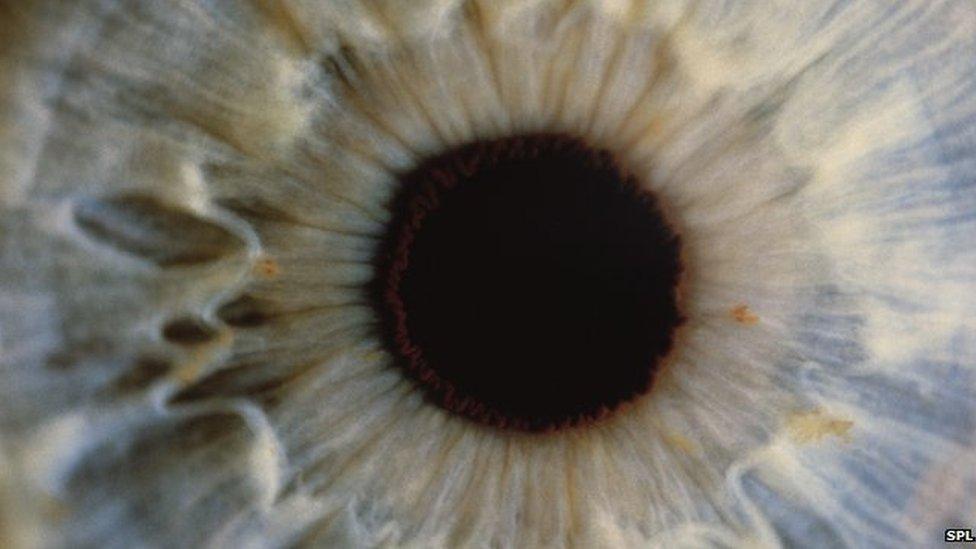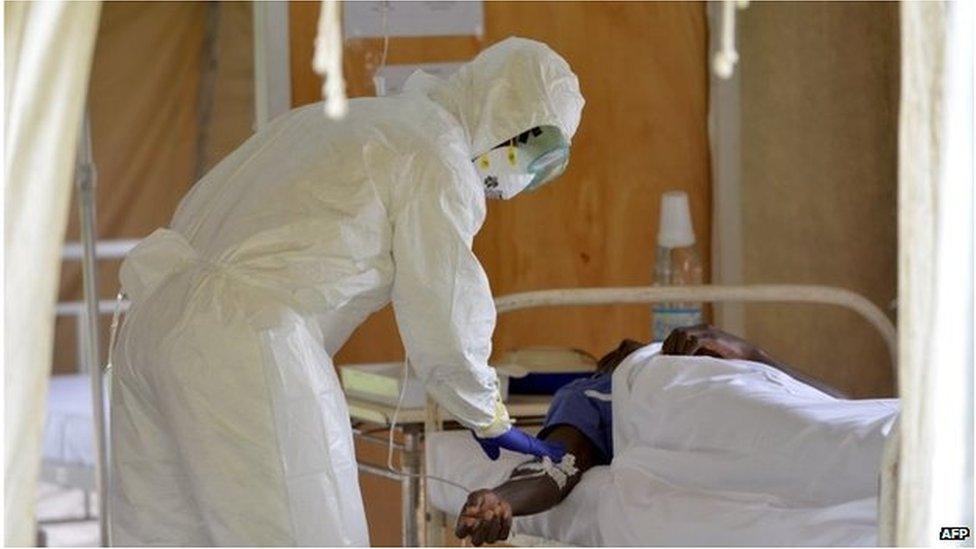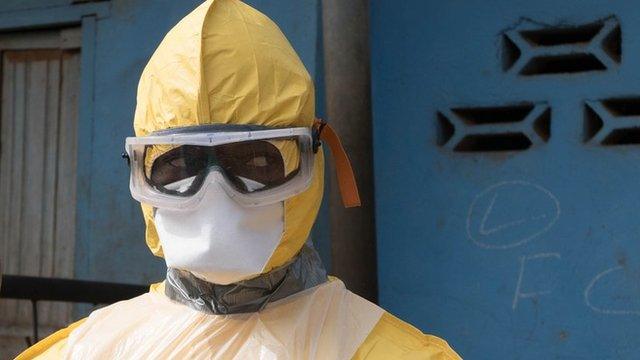What are the risks of Ebola recurring?
- Published

Pauline Cafferkey recovered from Ebola last year after spending a month in a specialist isolation unit at the Royal Free Hospital in London
British nurse Pauline Cafferkey is being treated for meningitis after the Ebola virus continued to replicate inside her brain.
What does the case mean for her and other Ebola survivors in West Africa?
How was the virus picked up?
The 39-year-old nurse, who contracted Ebola in Sierra Leone in December 2014, was seemingly recovering for many months.
But she was admitted to a hospital in Glasgow in October 2015 after feeling unwell and was flown to the isolation unit at the Royal Free Hospital in London after testing positive for Ebola.
Her doctors say the virus is present in her brain and spinal fluid and was causing "neurological complications".
Doctors expect her to stay at the Royal Free for some time.

BBC News looks at why some Ebola survivors suffer a flare up of symptoms
Does she have Ebola?
While she has the same virus as before she does not have the same disease.
When she was admitted last year with Ebola hemorrhagic fever she was vomiting, had diarrhoea and internal and external bleeding.
She was a major risk of spreading the infection as the virus replicated in her blood.
Now it is contained to one part of her body and is acting like any other form of viral meningitis by causing potentially deadly inflammation in the brain and spinal cord.
She was critically ill at one point, but now appears to be recovering.


The Ebola virus has been found to lurk in the eye with some survivors reporting vision problems
How can the virus survive in the body for so long?
Patients with Ebola are generally discharged once the virus cannot be detected in the blood.
However, there are parts of the body where the immune system is weaker, such as the eye, nervous system, cartilage and testes.
Tests on male survivors have shown that Ebola lingers in semen for at least nine months and men are being asked to use condoms.
It was also reported in this outbreak that the virus had been detected in the eye of a US doctor, external two months after being declared Ebola-free.
Doctors have called for more research into these "Ebola reservoirs" and what risks they pose to the health of the patient and any risk of infection to others.


There are around 17,000 survivors of the most recent outbreak of Ebola
Can survivors spread Ebola?
The virus spreads through direct contact with infected blood, bodily fluids or organs.
There has been only one case of an Ebola survivor spreading the infection.
A report in the New England Journal of Medicine showed the infection being spread through sex with a survivor six months after their symptoms had started.
However, there is almost no risk of the Ebola spreading if it is contained to the eye or the brain as the fluids in those organs are not exchanged easily.
There are now so many survivors in West Africa - around 17,000 - that if there was a major risk, then we would know about it.
Liberia did have a mini Ebola flare-up after going more than 40 days without a case.
The reason why is still unclear, but the Ebola virus persisting in survivors has been put forward as a possible explanation.
Experts say there will have to be monitoring for Ebola flare-ups for years to come.
What is the risk of the virus causing further health problems?
The health problems faced by survivors has been described as an "emergency within an emergency" in West Africa.
The most common issues being faced are severe joint pains, eye problems, serious fatigue, headaches and poor concentration.
The World Health Organization says meningitis now needs to be "on the radar" for doctors and survivors.
When Ms Cafferkey was in London recently for the Pride of Britain awards, she told the BBC that she had experienced joint pains, thyroid problems and lost her hair in the aftermath of her recovery from the disease.
A recent report from the World Health Organization found that changes in vision had been reported by roughly 25% of survivors.
If left untreated, these eye problems can cause blindness.
Depression and post-traumatic stress disorder have also been reported in some survivors.
But there is very little data or research into why or how often these health problems occur.
- Published21 October 2015

- Published7 October 2015

- Published30 September 2015

- Published15 April 2015

- Published23 March 2015
